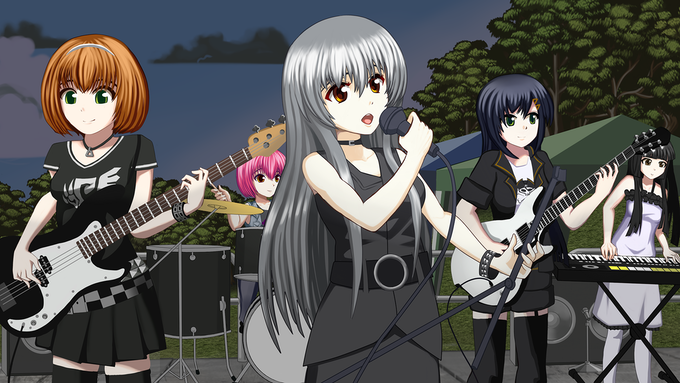It’s tough growing up. Especially when you’re in that transitional stage of life where you find yourself having to let go of the familiar (including lifelong friendships) in order to forge your own path in the world, as you attempt to become the person you were meant to be.
This is part of the premise of Wildfire: Ticket to Rock, a visual novel about a teenager who, due to a mistake/chance encounter, becomes the bass player in an all girl rock band.
We recently spoke to the game’s co-developer, Jacob Sporrong, about this upcoming title. We discussed story evolution, music collaboration, and how creating a visual novel is tougher than one might think.
Here’s what Jacob had to say about these topics and much more.
Tell us about yourself and your entry into video game development.
I’m Jacob one of the developers for Visual Saga, a small 3-person group from Sweden.
I’m in charge of programming. I’m also the one who creates headaches for the rest of the team when I suddenly change the art and script for our game.
The story about how and why I started making a visual novel is a bit embarrassing, in retrospect. It all started with the thought one day, “how hard can it be to make a visual novel?” Turns out, it’s much more difficult than I could ever have imagined.
Tell us about your game, Wildfire: Ticket to Rock.
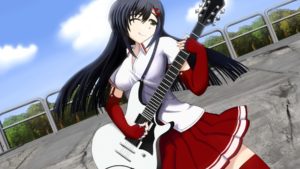
Wildfire: Ticket to Rock is a game about music and friendship, and the difficulty of growing up and finding out who you should become.
You describe your game as a slice of life, kinetic visual novel. Can you explain what a “kinetic” visual novel is and why you decided to go with that format?
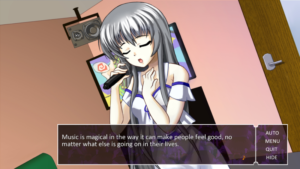
A kinetic novel is a visual novel that tells its story in a linear way, without introducing choices for the player to make.
We started by making a big story with many choices that would give the player the opportunity to move the story in many different directions and into different character routes.
But, after working on it for a while, we couldn’t help but realize that if we were to continue doing everything we had originally planned, we probably would {never} finish the game.
We then chose to change our focus to what we thought was the most interesting branch of the story {and work from there}.
The game originally was planned to have a male protagonist. Why did you decide to change the main character to a female?
During development our direction for the story changed and our main focus became one of friendship rather than dating.
We also came to a point where, after some feedback, we realized that the game we had wasn’t very good. Something had to change. So, we pondered our options.
One idea was to change the gender of the protagonist, which made a lot of sense. After that, a lot of pieces suddenly started falling into place. Story beats then carried a different weight.
The jigsaw pieces that are the story were basically still the same as before, but the way they fit together felt smoother.
Speaking of your main character, who exactly is Hanako?
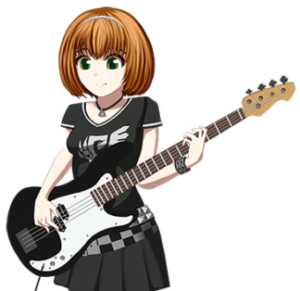
You can describe Hanako as an ordinary girl who likes to play video games and hang out with her friends and occasionally pick up her bass to play, and you would not be far from the truth.
But, being a teenager is more complicated than that. So much is changing during your teens, both your perception of yourself as well as how you view the world around you.
You will discover new sides of yourself {including} some you might not be proud of. But, that insight will enable you to do something about it.
It’s the same for Hanako, who tries to find out who she is meant to be and what she wants out of life.
For her, the catalyst is when she takes a leap of faith by creating a band with people she barely knows. During the game, you’ll see how she handles the changes that comes her way and what path she chooses to follow.
You’ve been on a 10-year journey with the game so far. What are some of the lessons you’ve learned along the way?
To begin with, we realized very quickly that there is much more work to creating a visual novel than what we thought. (It’s obvious when we look back, at just how naïve we were).
But the most important lesson is that the story you think you’re writing at the start of the project, is probably not the same one you’ll have when you reach the finish line.
Me and our writer are polar opposites in many aspects. But, our differences have led to many interesting discussions and new story developments that wouldn’t have come about otherwise.
Another important lesson is that everything is easier with money. If you can pay people to be done on time, rather than working when they have the time, you’re going to reduce waiting by a lot.
What type of software are you using to create your visual novel?
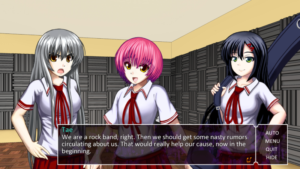
We’ve used slightly different software over the years.
We started with a programing software that was very new and was still in development called Novelty. But, after a year or so we realized that it would probably never receive anymore updates.
We then made the switch to Ren’Py (which is one of the most common programs for creating visual novels for English speaking developers) and we never looked back.
You’re working with the very experienced writer/producer/composer, Matthew Myers to create the music for the game. Tell us about that collaboration, how it came about, and how you came up with the sound for your game’s all girl rock band.
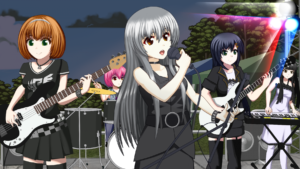
We knew in order to do justice to WTTR, we needed to make sure that the songs for the band in the game were good. So, we needed someone who already had a known track record for making good music for visual novels.
After I heard the Winter Wolves theme for Roommates, Matthew was the given choice. Luckily, he seemed intrigued to make songs that would take place in the game itself. (One thing I want to clarify is that Matthew makes the songs with vocals for the game, not any of the background music).
To answer how we came up with the sound, we knew that the songs would be inspired by rock, since that is the type of music that the band in the game is playing.
When it comes to the process of how each individual song is produced, then I would say it’s a collaborative effort between me and Matthew.
First, Matthew has played the game so he knows the story. Second, we wrote a description of the inner feelings of the character, who wrote the song in-game. What was important to them and how they view the world. I also gave a description of what aspect of that character the song should highlight. From that Matthew put his creative ability to work.
He’s fantastic to work with in that aspect. Even if you give him very little concrete information and you yourself are unsure how the song you need should sound, he’s able to make something that will fit your needs.
You recently ran a successful Kickstarter campaign. What tip(s) can you give to other indie developers thinking of running a funding campaign?
Our tip would be to prepare well. We started our work about a year before the game launched, making trailers, pre-writing mails and updates, as well as making a huge list of outlets, influencers, Facebook groups, etc.
You currently have WTTR planned for a May 2021 release on PC. Will you be releasing the game on any other platforms? Any chance of a physical edition sometime down the road?
We’ll take it one thing at a time. First we’ll have to finish the game before we can think about any possibility of releasing it on other platforms or physical copy.
What’s next for you / your game?

What lies ahead is a difficult question to answer.
We’ve been on this journey for 10 years now and a lot has changed in our lives over that time.
Right now we’re focusing on finishing the game we’re currently working on, and making sure it’s the best game it can be.
Any thought about us making more games in the future will have to wait until we finish this game.
But like all developers, we have a few concepts lying around we could dust off and take another look at. If that were to happen, we would take all the knowledge we’ve gained making Wildfire: Ticket to Rock, and put it to good use.
What’s your best piece of advice to fellow indie developers working on their very first game?
Keep at it. You have a story you want to tell, so do your best in telling it.
{Also}, outline your story in advance. That way you can find things that are contradictory or that won’t work for your story, at an early stage. It’s much easier to make changes to the structure of your story when you have it in an outline, than after you’ve written your first draft.
A big thanks to Jacob Sporrong for taking the time to answer our questions. We look forward to the release of Wildfire: Ticket to Rock!
Keep up with the latest WTTR/Visual Saga news, via Twitter.
Check out the game’s demo on Itch.io.
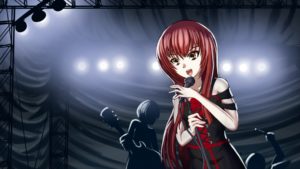
Watch a trailer and read more about Wildfire: Ticket to Rock on the Visual Saga website.

